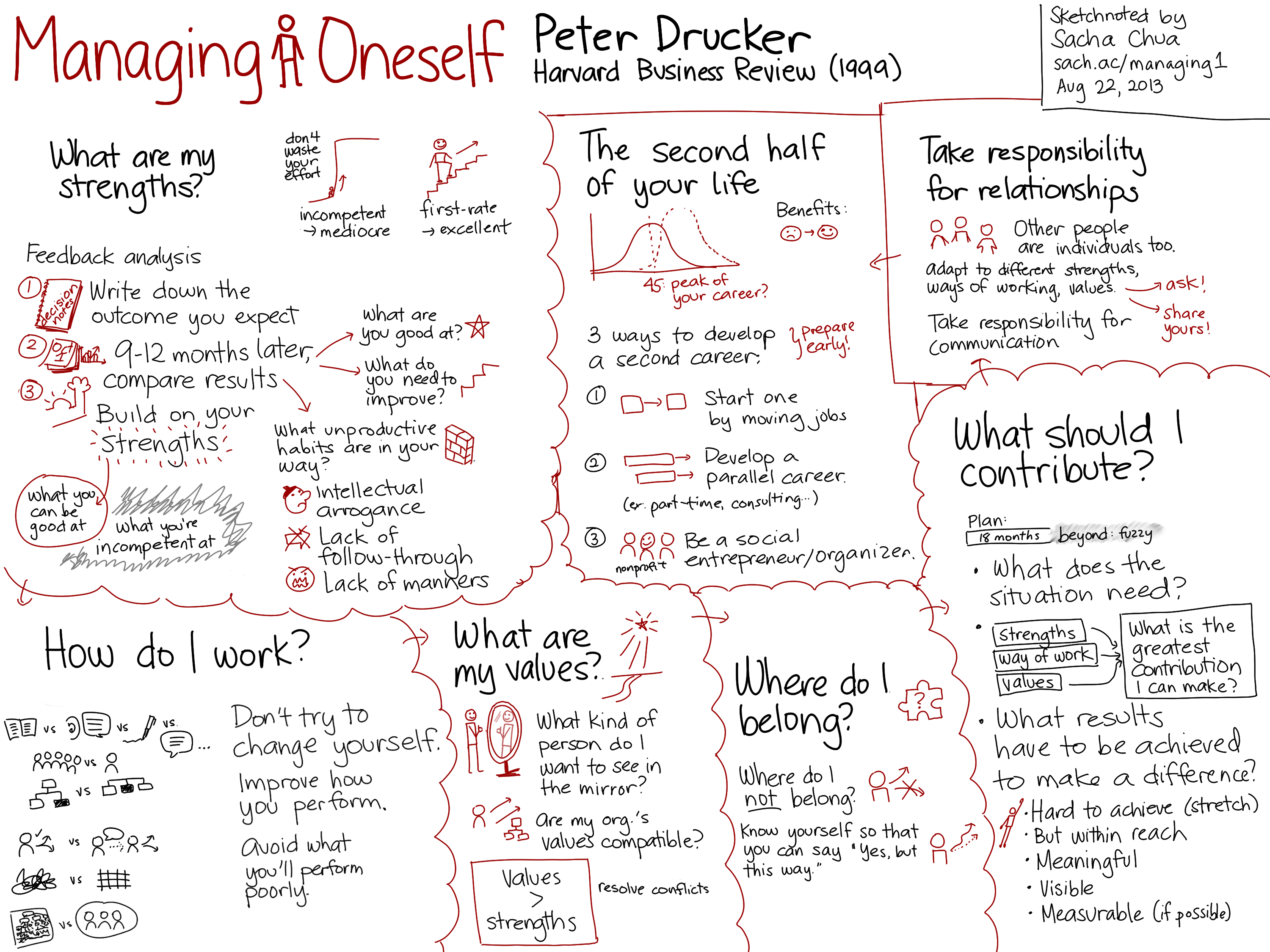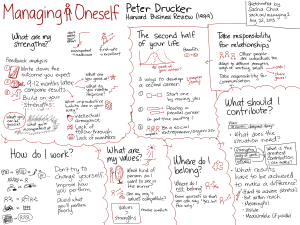
Book Review: Managing Oneself
The world of today is full of unprecedented opportunities. If you’ve got ambition, drive, and are smart, you can rise to the top of your profession regardless of where you started out. In his book ‘Managing Oneself’, Peter F. Drucker expounds how you can achieve true and lasting excellence by operating from a combination of your strengths and self-knowledge.
To cultivate a deep understanding of yourself you need to ask yourself five fundamental questions:
- What are my most valuable strengths and most dangerous weaknesses?
- How do I learn and work with others?
- What are my most deeply held values?
- And in what type of work environment can I make the greatest contribution?
- Want to read more about how to become your own Chief Executive Officer and drive your professional career?
In his book ‘Managing Oneself’, Peter F. Drucker describes how you can build a life of excellence in a world full of unprecedented opportunities. The main idea behind it is simple: Focus on your strengths and cultivate a deep understanding of yourself. You need to learn more about yourself than mere insights into your strengths and weaknesses. You also need to understand how you learn, how you work with others, what your values are, and where you can make the greatest contribution. Only then will you achieve true and lasting excellence.
What are my strengths?
To discover your strengths, you need to use feedback analysis. Every time you make a key decision or take a key action, write down what you expect will happen. Practiced consistently, the method will show you where your strengths lie and will also show what you are doing or failing to do that deprives you of the full benefits of your strengths. What results are you skilled at generating? What abilities do you need to enhance in order to get the results you want? What unproductive habits are preventing you from creating the outcomes you desired? In identifying opportunities for improvement, don’t focus on your weaknesses, because it will take you far more energy to improve from incompetence to mediocrity than to improve from first-rate performance to excellence. Instead, concentrate on – and build on – your strengths.
How do I learn and work with others?
Surprisingly few people know how to get things done. Like one’s strengths, how one performs is unique. So don’t try to change yourself; you are unlikely to succeed. Instead, focus on working hard to improve the way you perform. To know how you perform, you need to understand accurately in what ways you work best. Do you process information most effectively by reading it, or by hearing others discuss it? Do you accomplish the most by working with other people, or by working alone? Do you perform best while making decisions, or while advising others on key matters? Are you in top form when things get stressful, or do you function optimally in a highly predictable environment?
What are my values?
To be able to manage yourself, you have to ask yourself: What are my values? An organization also has values. If you work in an organization whose value system is unacceptable or incompatible with yours, your career will likely be marked by frustration and poor performance. A person’s strengths and the way that person performs rarely conflict; the two are complementary. But there is sometimes a conflict between a person’s values and his or her strengths. What one does well (even very well and successfully) may not fit with one’s value system. In that case, the work may not appear to be worth devoting one’s life to. Values, in other words, are and should be the ultimate test.
Where do I belong?
A small number of people know very early where they belong. Most people, especially highly gifted people, do not really know where they belong until they are well past their mid-twenties. To know where you belong, you need to consider your strengths, preferred work style, and values. Based on these qualities, in what kind of work environment would you fit in best? If you find the perfect fit you’ll transform yourself from a merely acceptable employee into a star performer.
What can I contribute?
Throughout history companies have told their business people what their contribution should be. Today, you have choices. But with choice comes responsibility. To decide how you can best enhance your organization’s performance, first ask what the situation requires. Based on your strengths, work style, and values, how might you make the greatest contribution to your organization’s efforts?
Conclusion
The challenges of managing oneself may seem obvious, if not elementary. And the answers may seem self-evident to the point of appearing naïve. But managing oneself requires new and unprecedented things from the individual, and especially from the knowledge worker. In effect, managing oneself demands that each knowledge worker thinks and behaves like a Chief Executive Officer.

